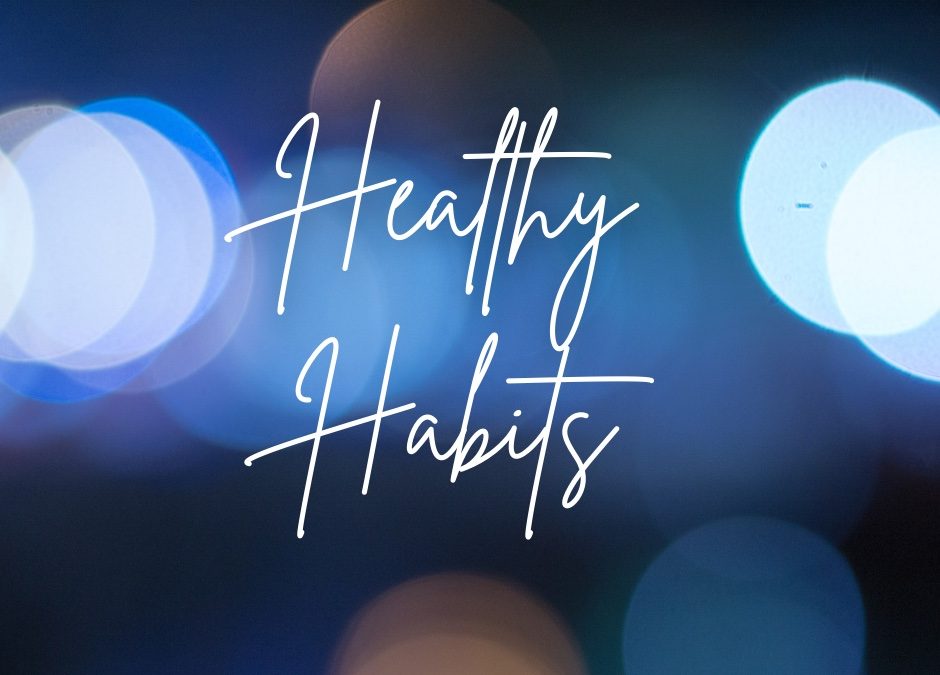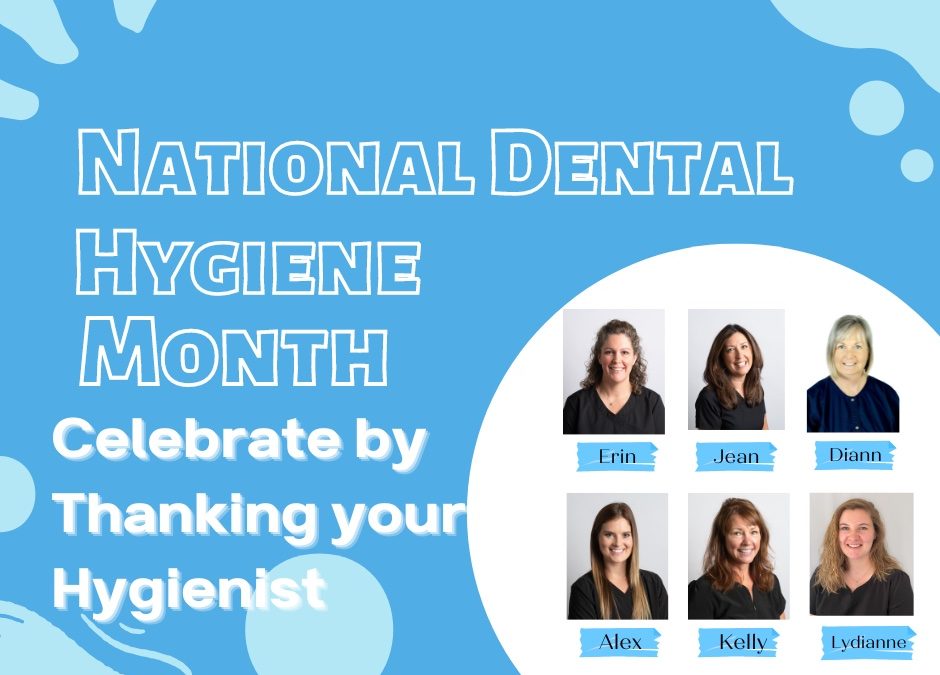
Jan 4, 2024
We all want healthier habits. We set our New Year’s resolutions with the best of intentions, but it can feel so difficult to stick with them! We get it! Creating a new habit requires repetition and time…and it’s worth it! At FDA, we want to be your partner in oral health and support you in setting up a home care routine that works for you. So, to help you stick with your healthy habits, here are a few tips.
Start Small
“A journey of a thousand miles begins with a single step.” Focus on that first step you can take to improve your health. If you’re struggling to floss daily, start with flossing once a week. Make Fridays “Flossing Fridays!” As you achieve small goals you will be motivated to keep going. Plus once you see how you feel afterwards, it will encourage you to keep it up!
Stack it Up
An effective way to stick with a new habit is to combine it with an existing habit. This is called habit stacking. If you’d like to drink more water each day, try to do it alongside something else you do regularly. For example, after you brush your teeth…drink a glass of water! After you eat a meal…drink a glass of water! These two actions will become connected and overtime it will become part of your regular routine!
Celebrate Your Success
Help yourself stay motivated by celebrating your progress. It takes commitment and some hard work to make new habits. Give yourself the recognition you deserve! When you hit every “Flossing Friday” in a month, treat yourself to a movie or a nice meal out at your favorite restaurant. Find what gives you joy and make it a part of your new habit! Not only are you celebrating your success, but you’re celebrating your healthy life choices!
Another way to keep up with your healthy habits is to make yourself accountable by sharing your goals. Let us know what healthy habits you are working on when you come in for your regular check ups with Dr. Brunacini and Dr. Karagiorgos. We can help track your oral health progress and be your cheerleader for sticking with it! After all, we are your partner in oral health. Give us a call if you have questions or need to schedule your next appointment – 207.781.5900.

Jan 3, 2024
Happy New Year! A new year is a new beginning which makes it the perfect time to incorporate some positive changes into your oral health care routine. At FDA, we consider oral health an important part of your overall health. In other words, a healthy mouth contributes to a healthy whole body. Give yourself a boost with these three resolutions that can help transform your oral health care.
- Upgrade Your Brush!
When was the last time you replaced your toothbrush? According to the ADA, you should replace your toothbrush every three to four months. If you’ve had one of those pesky viruses that has been circulating this winter, that’s a good time to replace your brush, too. As you’re shopping for a new toothbrush, why not upgrade to an electric toothbrush! Our team of amazing hygienists swear by them. Electric toothbrushes really do a superior job removing plaque and cleaning the surfaces of your teeth. Many electric toothbrushes also have a built-in timer so you’re sure to brush for a full two minutes. Going electric is an easy way to improve your home care routine!
2. Eat with Your Teeth in Mind!
What you eat has an impact on your oral health, so consider your teeth next time you’re snacking! Of course we recommend limiting your sugar intake, but there are also foods you can choose that will give your oral health a boost. For example, foods that are high in calcium, like cheese and yogurt, will support the health of your pearly whites and your gums. Yogurt also has the benefit of being a probiotic, which will help keep your mouth balanced with healthy bacteria. Also, cheese contains a protein called casein which helps fortify your tooth enamel. Eating crunchy fruits and veggies will help clean your teeth as you chew, as well as stimulate saliva so your mouth gets rinsed of harmful bacteria. Plus they are chock full of vitamins and minerals that support your health! An apple a day…keeps you smiling away! ?
3. Get Regular Check Ups!
Have you been avoiding coming to the dentist? Prioritize your oral health and schedule regular check ups with Dr. Brunacini or Dr. Karagiorgos this year! Our top priority is making sure our patients receive the best oral care in an environment that is comfortable and supportive. If you feel nervous about visiting the dentist – we can help put you at ease! Give us a call and we can discuss our mild sedation options as well as other techniques we recommend for reducing dental anxiety. Our approach is all about designing a dental plan that fits your needs and budget so you can attain your dental health goals.
Embracing these easy New Year’s resolutions will help put you on the path to improved oral health. At FDA, we are your partner in oral care, and our compassionate team of professionals is always here to answer your questions and help you maintain a healthy and happy smile. If you need to schedule your next appointment, give us a call at 207.781.5900. Together, let’s make 2024 the year of radiant smiles and excellent oral health!

Oct 2, 2023
Need a reason to smile? The first Friday in October is World Smile Day. This unofficial holiday has a simple mission: to encourage people to do acts of kindness and help others smile. At FDA, we love helping our patients achieve the smile of their dreams! Whether it’s finding a home-care routine that supports your oral health goals or a cosmetic procedure that boosts your confidence, we are in the smile business. To honor World Smile Day, we look at the history of this fun worldwide celebration, and outline the ways we can help you smile today…and everyday!
World Smile Day
Back in 1963, commercial artist Harvey Ball created the smiley face – that iconic cheerful, yellow circle with an eyes and mouth. The image became one of the most recognizable symbols of goodwill and cheer in the world. Concerned about the over-commercialized use of “Smiley” and the loss of its original meaning, Ball created World Smile Day. He believed that everyone should devote at least one day to smiles and acts of kindness. The first Smile Day was held in 1999 in Ball’s hometown of Worcester, Massachusetts. You can join the celebration each year on the first Friday in October by following its simple challenge: “Do an act of kindness. Help one person smile.”
Helping Mainers Smile
Since 1974, Falmouth Dental Arts has been on the cutting edge of dentistry and focused on patient care. For us, a healthy and happy smile is about more than just clean teeth. It’s about your whole-body health and your comfort when you are in our care. We work closely with you to design a dental plan that fits your needs and your budget so you can make the best possible choices for your health. We offer a wide range of services to provide the best oral care possible and help our patients achieve the smile of their dreams!
- Family Dentistry – We believe that oral health is important at every age, no matter the state of your dental health. Dr. Brunacini and Dr. Karagiorgos and our entire staff are committed to providing a caring and compassionate environment for you to receive excellent dental care. Our use of crest-of-the-wave technology, such as 3D Imaging and Same-Day Crowns, offers patients the highest quality of care and more comfortable experience. We will help you maintain your oral hygiene and develop a home care regimen that improves your oral health and gives you a bright smile that will last a lifetime!
- Cosmetic Dentistry – When you’re self-conscious about showing your teeth, you may talk less, laugh less, and smile less. We can help you change that in just one or two dental visits. Many dental issues can be addressed with cosmetic dentistry – from chipped teeth to crooked teeth, stained teeth or lost teeth. A simple consultation with Dr. Brunacini or Dr. Karagiorgos can help you get on the path to the smile of your dreams!
We’d love to hear about what is making you smile these days! Please share with us on our Facebook page! Bonus points if you share an act of kindness on World Smile Day! If your smile needs a little attention and care, give us a call today at 207.781.5900. We can set you up with a consultation appointment for a cosmetic procedure or help you schedule your next check up. Let us help you have a healthy, happy smile!!

Oct 1, 2023
Have you thanked your dental hygienist recently? Well, now is the perfect time because October is National Dental Hygiene Month! FDA’s caring and wonderful team of hygienists are truly the heart of our practice. Alex, Diann, Erin, Jean, Kelly, and Lydianne are who you see at every cleaning appointment and are all committed to patient comfort and care. Their love of building relationships is what helps our patients find an individualized oral health care routine that supports whole-body health. As a fun way to honor our amazing hygienists and encourage you to practice excellent dental hygiene, we’ve spelled out some hygienist-approved tips and reasons why Alex, Diann, Erin, Jean, Kelly, and Lydianne are such amazing and compassionate professionals!
H is for hydrate! Drinking plenty of water improves oral health. It washes away leftover food and cavity-causing bacteria.
Y is for yogurt! Yogurt is a healthy snack that will support your oral health as well as your overall health. It’s full of calcium for strong teeth and the probiotics will support a healthy mouth.
G is for gentle! Patient comfort comes first. With a gentle touch, our team of hygienists provide a calm and caring environment for patients to receive the best oral care.
I is for individual! We see each patient as a unique individual and get to know your personal history and dental needs. We work with you to find the right oral care and treatments.
E is for education! Our hygienists are life-long learners committed to staying on top of the latest dental technologies and treatment. Plus, they *love* educating patients on best practices.
N is for nice! You’ll never meet a nicer, more caring group of oral health professionals. Alex, Diann, Erin, Jean, Kelly, and Lydianne are people you will enjoy seeing at your regular appointments.
I is for interproximal cleaning! Also known as flossing, interproximal cleaning is our hygienists number one oral hygiene tip for patients. Whether you use traditional floss or “Plackers,” find what works for you and stick with it!
S is for smile. Our hygienists love helping patients achieve the smile of their dreams. We also love seeing the smiles on our patients’ faces when they leave our office feeling heard and cared for.
T is for toothbrush – electric, please! If you haven’t invested in an electric toothbrush yet, now is the time. Our hygienists swear by electric toothbrushes – they are more effective at removing plaque than a manual toothbrush and stimulate the gum tissue, which promotes gum health.
Thank you to our hygienists extraordinaire – Alex, Diann, Erin, Jean, Kelly, and Lydianne! Next time you come in for an appointment, please be sure to say thank you, too – or give them a shout out on our Facebook page! If you have any questions about oral hygiene tips or want to go over your oral health care routine, give us a call at 207.781.5900. We are here to be your partner in excellent oral health care.





